10 Blood Pressure-Friendly Drinks to Start Your Morning for a Healthier Day
As an Internal Medicine Physician specializing in hypertension management, one of the first things I always emphasize to my patients is the importance of a healthy lifestyle. We know that blood pressure management doesn’t just rely on medications; your daily habits, especially what you drink, can have a significant impact on your health. Many people don’t realize that the drinks they consume in the morning can either contribute to or help manage high blood pressure. So, let’s talk about some of the best blood pressure-friendly drinks to start your morning right. This isn’t just about avoiding caffeine or sugary drinks—it’s about making the right choices to set your day up for success.
Why Your Morning Drink Matters for Blood Pressure
Many people don’t think twice about what they drink in the morning. After all, it’s a routine—coffee, juice, or maybe just water. But when you have hypertension or you’re trying to manage your blood pressure, the right drink choice in the morning can make a real difference. High blood pressure is often referred to as a “silent killer” because it doesn’t always show obvious symptoms. That’s why it’s so important to take control of factors that we can manage, like diet and hydration, to maintain healthy blood pressure levels.
Start your morning with drinks that won’t spike your blood pressure. Many beverages—like sugary juices, coffee, or energy drinks—can elevate your blood pressure in a way that sets you up for a rough day ahead. On the other hand, some drinks are naturally heart-healthy and help maintain normal blood pressure. Let’s explore those options in more detail.
Hydration: The Foundation for Healthy Blood Pressure
First things first: hydration is crucial for your overall health and particularly for maintaining normal blood pressure. Dehydration can cause your blood pressure to rise because your body works harder to circulate blood. That’s why drinking water as the first thing in the morning is such a simple yet powerful choice for anyone with hypertension.
In my experience, a lot of people struggle to drink enough water throughout the day. One of the best ways to ensure you’re hydrating properly is to start your day with a tall glass of water. It helps kickstart your metabolism, flush out toxins, and sets a healthy tone for the rest of the day. If plain water is a bit too boring for you, there are plenty of creative ways to make it more enjoyable without compromising your health.
The Power of Herbal Teas
When it comes to blood pressure-friendly drinks, herbal teas are among the best options you can choose. They’re full of antioxidants, low in calories, and free of caffeine, which can spike your blood pressure. Herbal teas like hibiscus, chamomile, and peppermint are not only delicious but also incredibly beneficial for your cardiovascular health.
One of my personal favorites to recommend to patients is hibiscus tea. Studies have shown that hibiscus tea can lower both systolic and diastolic blood pressure. It works by acting as a natural vasodilator, meaning it helps relax your blood vessels, which in turn lowers your blood pressure. It’s also rich in Vitamin C, which supports your immune system, making it a perfect drink to sip on during your morning routine.
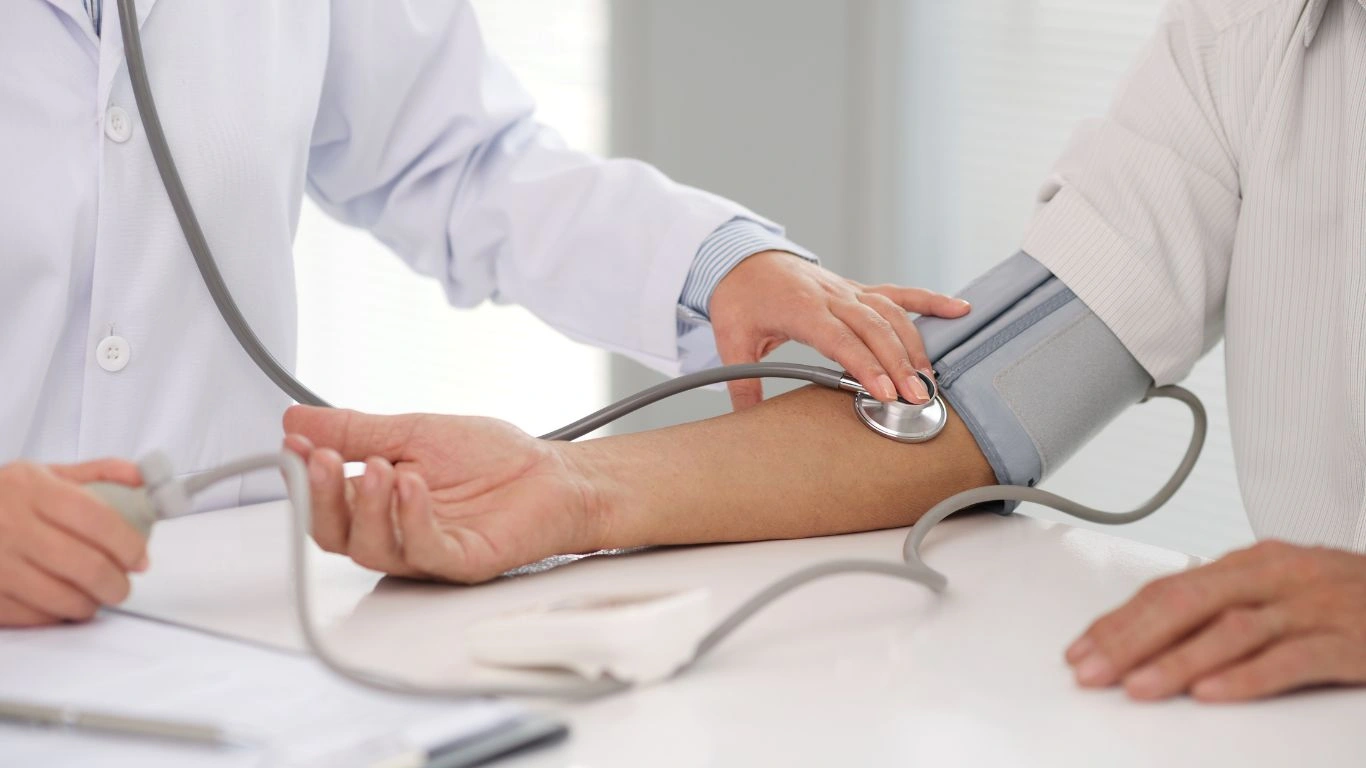
Fresh Vegetable Juices
If you love a good juice in the morning but want to keep your blood pressure in check, then consider swapping sugary fruit juices for fresh vegetable juices. Vegetables like spinach, kale, and beets are packed with nutrients like potassium, magnesium, and nitrates—all of which are known to support healthy blood pressure levels.
Beet juice, in particular, has been shown to have a significant impact on blood pressure due to its high nitrate content. Nitrates help improve blood flow by dilating blood vessels, reducing blood pressure. I often suggest drinking a small glass of fresh beet juice in the morning, especially for those looking to add a natural boost to their morning routine.
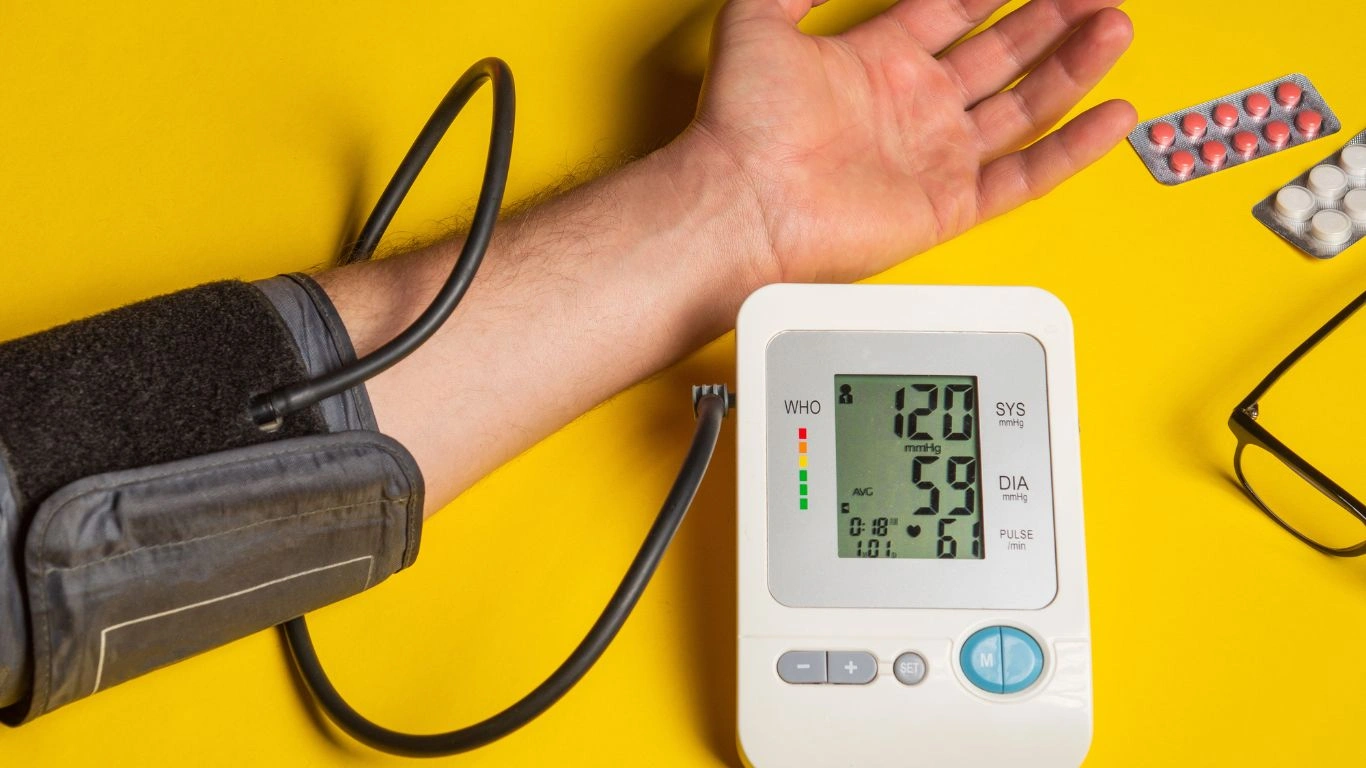
Coconut Water: A Natural Electrolyte Boost
Another excellent blood pressure-friendly drink to consider is coconut water. It’s a great source of electrolytes, particularly potassium, which plays a key role in balancing sodium levels and relaxing blood vessels. Potassium-rich foods and drinks are often recommended for managing hypertension because they help counteract the effects of too much sodium in the diet.
In addition to helping regulate your blood pressure, coconut water is also hydrating and low in calories, making it a fantastic way to start your day. It’s important to look for coconut water that’s free of added sugars to get the full benefit. You can drink it as-is or mix it with a little bit of lemon juice for a refreshing twist.
Green Tea: A Heart-Healthy Choice
Green tea is another powerhouse beverage when it comes to heart health. It’s packed with antioxidants, specifically catechins, which have been shown to lower blood pressure. Plus, green tea provides a small amount of caffeine, enough to give you a gentle energy boost without the spikes that come from coffee. Green tea also has the added benefit of promoting fat burning and improving cholesterol levels, which are important factors in cardiovascular health.
For those of you who love the ritual of sipping something warm in the morning, green tea is an excellent, heart-healthy choice. I’ve seen many patients successfully incorporate it into their routine, reporting feeling more alert and energetic without any of the jitters that come from high-caffeine drinks.

Why You Should Skip the Sugary Drinks
It’s easy to grab a sugary drink, whether it’s fruit juice, soda, or an energy drink, in the morning. But these beverages can wreak havoc on your blood pressure, especially if you consume them regularly. The high sugar content can contribute to weight gain, insulin resistance, and inflammation—all of which are risk factors for high blood pressure.
If you’re trying to manage your blood pressure, it’s best to limit sugary drinks, especially in the morning. Instead, try opting for drinks that hydrate and nourish your body without spiking your blood sugar. I always tell my patients to make water, herbal teas, or fresh vegetable juices their go-to drinks when they start their day.
A Look at Low-Sodium Drinks for Blood Pressure Management
When you’re managing hypertension, one of the first things you hear about is cutting back on sodium. High sodium intake can cause the body to retain fluid, leading to an increase in blood pressure. So, when it comes to choosing drinks, it’s just as important to watch the sodium content. Many drinks, particularly flavored waters or pre-packaged juices, can be surprisingly high in sodium.
As someone who has spent years working with hypertensive patients, I can’t stress enough how critical it is to read labels when choosing drinks. One of the best ways to ensure you’re avoiding excess sodium is to go for natural, whole-food-based options. Freshly made vegetable juices, herbal teas, or simply water with a splash of lemon or lime are all great choices that won’t raise your sodium intake.
It’s easy to assume that low-sodium options are limited, but once you start paying attention to your drink choices, you’ll realize that there are plenty of refreshing and healthy options. In fact, many of the drinks we’ve already discussed, like hibiscus tea or coconut water, are naturally low in sodium, making them great for blood pressure control.

The Role of Smoothies in Blood Pressure Control
Another great option for managing hypertension in the morning is smoothies. Smoothies are a fantastic way to combine healthy ingredients like fruits, vegetables, and nuts into one drink. While fruit smoothies can be high in natural sugars, you can balance them out by including ingredients that support heart health and help regulate blood pressure.
For example, adding spinach or kale provides a good source of potassium, while berries—like blueberries or strawberries—are packed with antioxidants that have been shown to improve blood vessel function. To make your smoothie even more blood pressure-friendly, try adding flaxseeds or chia seeds, which are rich in omega-3 fatty acids. These healthy fats play a crucial role in supporting heart health and keeping your blood pressure in check.
I’ve personally seen a lot of patients improve their blood pressure by incorporating smoothies into their morning routine. The beauty of smoothies is that you can easily customize them based on your personal taste and nutritional needs. Just remember to keep an eye on the ingredients you’re adding—avoid sugary additives like syrups or sweetened yogurts, and opt for unsweetened alternatives to keep things healthy.

The Benefits of Lemon Water
Lemon water is one of the simplest yet most effective drinks you can start your morning with. I always recommend lemon water to my patients, not only because it’s hydrating, but also because it’s packed with vitamin C, a powerful antioxidant that supports heart health. Lemons contain flavonoids that have been shown to have anti-inflammatory effects, which is key for lowering blood pressure and improving circulation.
Another important factor is that lemon water can help improve your kidney function. Your kidneys play a crucial role in regulating your blood pressure, and staying hydrated with lemon water helps to keep them working optimally. Plus, the acidity of lemon juice can help your body absorb minerals more effectively, which is vital for maintaining proper electrolyte balance—a key component of healthy blood pressure.
If you’re someone who struggles to drink plain water, adding a few slices of lemon can make all the difference. I often tell my patients to start their day with a glass of warm lemon water—it’s a soothing, natural way to boost hydration and give your body a jumpstart for the day ahead.
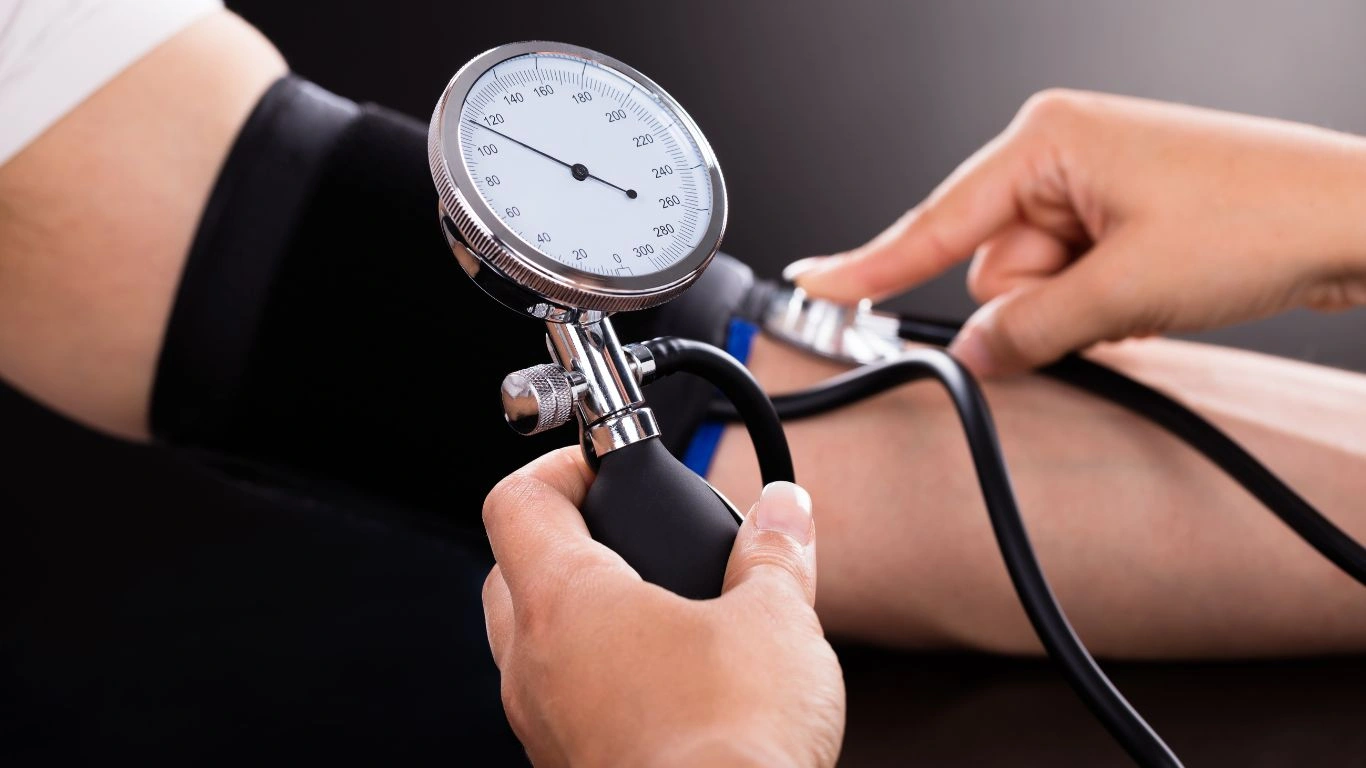
Milk Alternatives: A Blood Pressure-Friendly Option
If you’re avoiding dairy or looking for a lower-calorie alternative to traditional milk, there are some excellent options that can support your blood pressure. For example, almond milk and oat milk are both heart-healthy options. These milk alternatives are generally lower in calories and fat compared to whole milk, and many of them are fortified with additional nutrients like calcium and vitamin D—important for maintaining healthy bones and blood pressure.
Almond milk is particularly good for managing hypertension because it’s low in sodium and rich in healthy fats. Oat milk is another great option because it contains soluble fiber, which can help reduce cholesterol levels and, in turn, support cardiovascular health. Just be sure to choose unsweetened versions, as added sugars can cause unwanted spikes in blood sugar and potentially contribute to high blood pressure.
When I talk to my patients about milk alternatives, I always emphasize the importance of checking labels. Many plant-based milks are packed with added sugars or preservatives that negate the health benefits. Stick with simple, unsweetened varieties to keep your morning drink healthy and blood-pressure friendly.
Other Drinks to Avoid for Better Blood Pressure
While it’s important to highlight the blood pressure-friendly drinks, it’s just as crucial to avoid certain drinks that can exacerbate hypertension. As much as we all love our morning coffee or that occasional energy drink, these beverages can contribute to higher blood pressure, especially when consumed regularly or in large quantities.
Let’s start with coffee. While a moderate amount of coffee may be fine for some, it can cause an increase in blood pressure, especially in people who are sensitive to caffeine. If you’re someone who loves coffee but struggles with high blood pressure, it might be worth trying decaffeinated coffee or switching to green tea, which has a much lower caffeine content and provides plenty of antioxidants.
Similarly, energy drinks are often packed with caffeine and added sugars—both of which can contribute to elevated blood pressure. If you’re someone who needs a pick-me-up in the morning, consider switching to herbal teas, coconut water, or a smoothie instead of reaching for an energy drink.
The Impact of Alcohol on Blood Pressure
While we’ve focused a lot on drinks that support healthy blood pressure, it’s important to discuss one type of beverage that can have a significant negative impact—alcohol. As much as we may enjoy a glass of wine with dinner or a celebratory toast, alcohol can have adverse effects on blood pressure, especially when consumed in large quantities.
As someone who manages hypertension in patients on a daily basis, I’ve seen how even moderate alcohol consumption can cause fluctuations in blood pressure. Regular, heavy drinking can lead to chronic high blood pressure, increasing the risk of heart disease, stroke, and kidney problems. It’s also worth noting that alcohol can interfere with the effectiveness of blood pressure medications, making it even harder to control hypertension.
That being said, some studies suggest that moderate alcohol consumption—like a glass of red wine—might have a slight positive effect on heart health due to its antioxidant properties. However, I always advise my patients to consume alcohol in moderation and to be mindful of how it affects their blood pressure. If you’re dealing with high blood pressure, it’s a good idea to keep your alcohol intake to a minimum, or better yet, avoid it altogether.
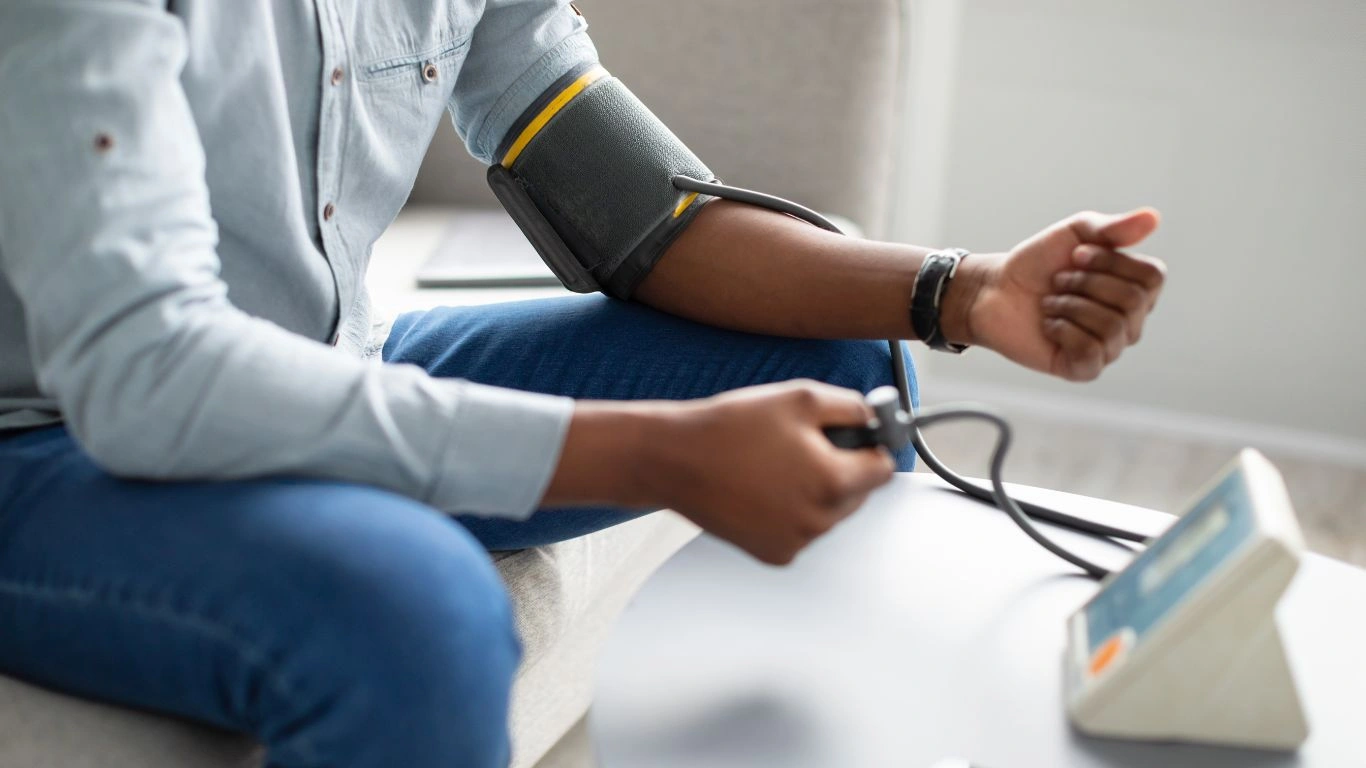
Staying Consistent with Your Blood Pressure-Friendly Morning Routine
As we’ve covered in this article, there are a wide variety of drinks that can help you manage and even lower your blood pressure, from herbal teas to fresh juices to simple water. However, the key to success lies in consistency. One of the most common mistakes I see in my practice is people getting overly focused on short-term fixes rather than long-term habits. Incorporating blood pressure-friendly drinks into your daily routine, and sticking with it, will yield much better results over time.
It’s important to build a routine that you can sustain. For example, if you’re someone who loves coffee but is trying to lower your blood pressure, don’t think you need to cut it out entirely. Instead, try to gradually reduce your caffeine intake, or replace your morning cup of coffee with a lower-caffeine alternative like green tea. The same goes for sugary drinks—don’t overwhelm yourself with drastic changes. Start by replacing one sugary drink a day with something healthier, like coconut water or a homemade smoothie.
As with any health goal, managing hypertension is about making incremental changes that you can maintain over time. Creating a morning drink routine that focuses on hydration, heart-healthy ingredients, and natural flavors will give you the best shot at improving your blood pressure without feeling deprived or overwhelmed.
The Importance of Monitoring Your Blood Pressure
Aside from the drinks you consume, it’s crucial to monitor your blood pressure regularly, especially if you’ve been diagnosed with hypertension. As a physician, I always stress the importance of keeping track of your numbers so that you can see how your lifestyle changes, including diet and drink choices, are making a difference. Regular monitoring allows you to catch any spikes early and work with your healthcare provider to make adjustments to your treatment plan.
There are a variety of home blood pressure monitors available that make it easy to check your numbers from the comfort of your home. In fact, I recommend that all of my patients with hypertension invest in one. This allows them to stay proactive and make adjustments when necessary. It’s important to remember that blood pressure can fluctuate throughout the day, so take multiple readings at different times and average them out for a more accurate picture of your health.
Working with your healthcare provider is also key. They can guide you in understanding your readings, adjusting medications if needed, and offering advice on how to improve your blood pressure through lifestyle modifications, including changes to your diet and drink choices.
The Role of Stress Management in Blood Pressure Control
In addition to choosing the right drinks, managing stress is another crucial factor in controlling blood pressure. Chronic stress is a well-known contributor to high blood pressure, and it can undo all the good work you’re doing with your diet and lifestyle. I always encourage my patients to find ways to reduce stress, whether through exercise, meditation, mindfulness, or simply taking time to relax and unwind each day.
Even small moments of relaxation, like sipping a cup of herbal tea while taking a few deep breaths, can have a positive impact on your blood pressure. I know it might sound simple, but sometimes the best remedies are the ones that focus on our overall well-being, rather than just one aspect of health. Creating a morning routine that includes moments of peace and reflection, along with blood pressure-friendly drinks, will help you start your day with a balanced mindset and lower stress levels.
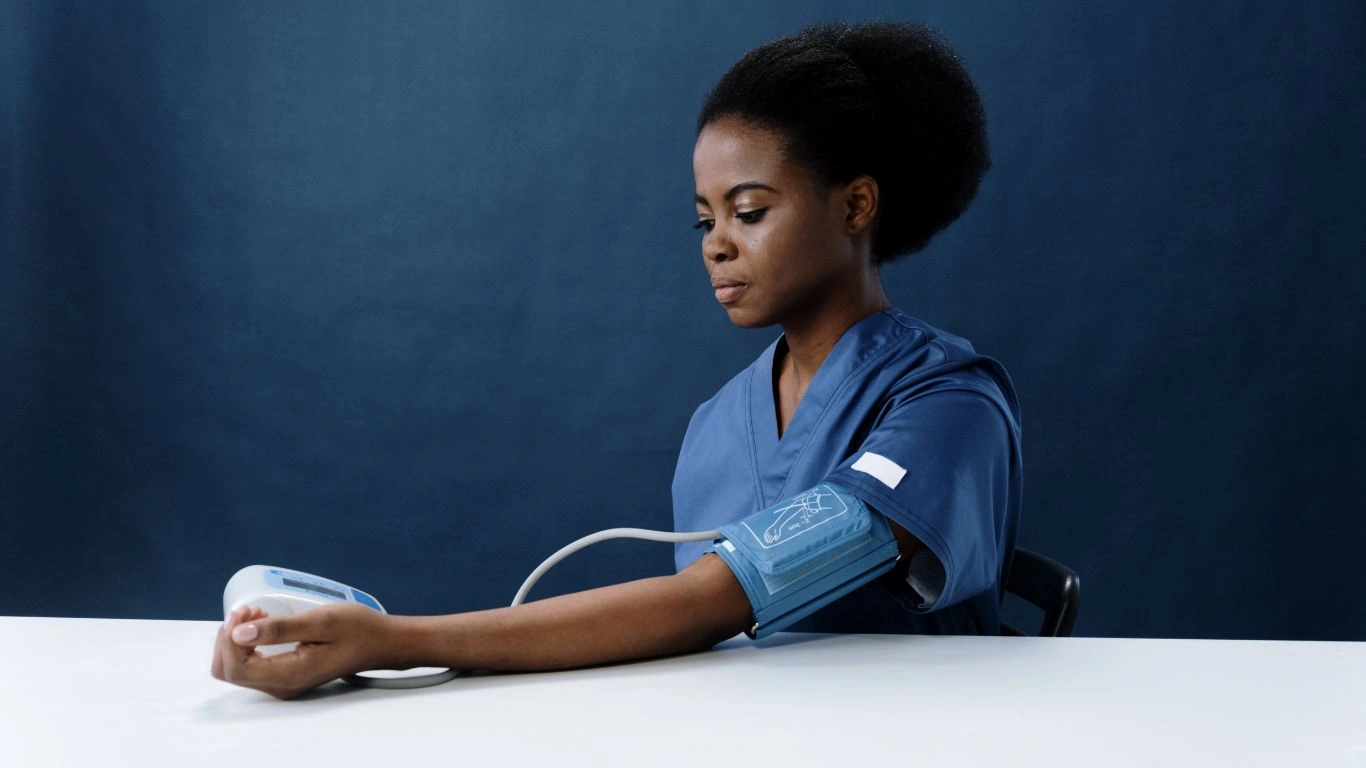
References
Disclaimer
The information provided in this article is for informational purposes only and is not intended to replace professional medical advice, diagnosis, or treatment. Always seek the advice of your physician or other qualified health provider with any questions you may have regarding a medical condition. Never disregard professional medical advice or delay in seeking it because of something you have read in this article. If you think you may have a medical emergency, call your doctor or emergency services immediately.

Dr. Gwenna Aazee is a board-certified Internal Medicine Physician with a special focus on hypertension management, chronic disease prevention, and patient education. With years of experience in both clinical practice and medical writing, she’s passionate about turning evidence-based medicine into accessible, actionable advice. Through her work at Healthusias.com, Dr. Aazee empowers readers to take charge of their health with confidence and clarity. Off the clock, she enjoys deep dives into nutrition research, long walks with her rescue pup, and simplifying medical jargon one article at a time.







